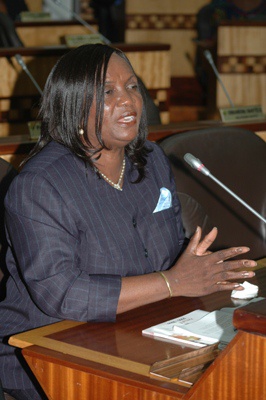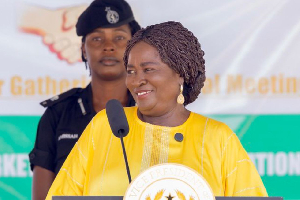Government is to allocate five million dollars for the next phase of the e-justice system to enhance administration and delivery of justice in the country.
Dr Edward Omane Boamah, Minister of Communications, announced this on Tuesday at the inauguration of a Huawei TP 3006 telepresence video conferencing equipment donated to the judiciary in Accra.
The e-justice project seeks to infuse Information Communication Technology (ICT) products into the judiciary.
It is with the collaboration of the Ghana Judicial Service and the Ministry of Communication, and would be funded with a $2 million facility provided by the World Bank.
The project is expected to boost judicial transparency to facilitate access to a speedy, reliable and efficient justice system, and enhance legal research and administration.
It would also complement the existing court automation programme to facilitate electronic filling and fast retrieval of documents, shorten processing of cases, offer concurrent access to files from different locations and better collaboration between the judiciary and stakeholders.
Dr Boamah expressed optimism that the provision of the facility would cut down on travels by staff of the judiciary from one geographic location to the other, and carbon emissions by vehicular and air traffic.
Chief Justice Georgina Theodora Wood said the equipment would provide judges with a virtual courtroom setting, where evidence, judgments and other testimonies could be taken remotely from witnesses living abroad.
She expressed the hope that it would improve case management and expedite justice delivery, especially at the Appeal division where additional courts had been set up in Kumasi, Cape Coast, Koforidua and Tamale.
Mrs Justice Wood said “with this facility, the sitting days will increase from four days to five days with judgment delivered via this facility to the regions from Accra.”
“This is because additional facilities will be set up in Tamale, Kumasi and Takoradi.”
Mrs Justice Wood added that Rules of Court Committee would amend their rules in order that evidence and judgments could be taken and delivered electronically.
On the benefit of the telepresence equipment, she said it would reduce cost of transportation and risk of travelling among the staff of the judiciary.
The equipment forms part of the deliverables earmarked for the Judicial Service under the e-Ghana Phase I project currently being championed by the Ministry of Communications and implemented by the National Information Technology Agency.
The e-Ghana project, strategically seeks to develop and expand ICT products and services, including infrastructure for Government institutions and organisations.
The provision of more than 25 telepresence video conferencing equipment to selected public institutions would facilitate inter-governmental communication and efficient delivery of government services to citizens and businesses.
Regional News of Tuesday, 27 August 2013
Source: GNA
Government earmarks $5million for e-justice













